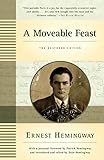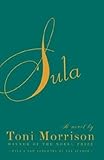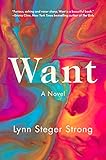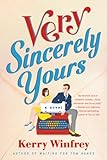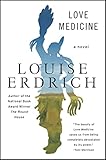In 2020 I had time to read. I spent March and April sitting in my parked car while my son “played steering wheel.” I could have read a lot of books in the passenger seat while Wes beeped the horn and pressed all the buttons on the broken CD changer. But mostly, I didn’t. Mostly, in 2020, I stared at the news, or at the sky, or down at the top of my dog’s head where his orange fur is turning white. I went for long, thought-obliterating runs—first along the James River, sweating in the Virginia heat; and then through the New Haven fall, past the dorms full of quarantined students who were not allowed past the padlocked courtyard gates. In 2020 I got stronger and faster, and I gave myself an uneven bob with the kitchen scissors. I watched too much pandemic basketball, moved to my third state in as many years, published a novel, and yelled at my adorable son more times than he deserved. I did not get on a plane; I did not see my family. I hardly read. It feels bad to admit it.
It also feels a little dishonest. Because I did read. More than most people, maybe. But the events of the past year have compromised my attention. Apparently, in order to slip inside a fictional world, I need to have some amount of faith that my actual world will remain fixed for thirty minutes or an hour—whenever I choose to put down the book. And it’s an unreasonable requirement now that the virus kills more than a thousand Americans a day; now that the president refuses to concede an election he lost; now that I am quarantined in my living room with my three-year-old, who was exposed to Covid last week. If I’m exaggerating how little I read this year, it’s because I want to confess that under duress I surrendered one of the great pleasures of my life. Reading, which was always easy, became hard.
But because it has been hard, it is also the case that the books I finished in 2020 have not blurred or dissipated in my mind. I remember them vividly, think about them constantly.
I read Ling Ma’s Severance at the end of February, as the virus loomed imprecisely—the kind of crisis that would wreak havoc in other places but let America off with a warning. I read Severance for the same reason a lot of people watched Contagion, or the reason English majors always read A Moveable Feast after a trip to Paris. To think, I’ve been there; I’ve seen that. To feel the chill of recognition. In March, I read an early copy of Curtis Sittenfeld’s Rodham (and wrote about it for the Los Angeles Review of Books). There is something irresistible about a counterfactual history, especially in an era when our own political fate feels infuriatingly arbitrary—both avoidable and nearly avoided. When we can’t stop tweeting: “It didn’t have to be like this.” I read The Knockout Queen by Rufi Thorpe as summer eclipsed spring in Virginia. I carried the book with me as my son and I roamed Richmond, searching for deserted parks where we could go maskless. Thorpe is one of my favorite writers: nothing could prevent me from losing myself in her fiction, which has a way of remaking the world without veering into fantasy or surrealism. Everything is just slightly heightened, vibrational. Like when it’s ninety degrees at nine a.m., as it often was, this spring.
At the start of summer I picked up Toni Morrison’s Sula, having last read it ten years ago. I wanted something I knew I loved and would finish in an afternoon. This was June, when a lot of people were sharing “anti-racist reading lists” with Sula or The Bluest Eye slapped on at the end, as if Morrison was in the business of giving white people self-improvement lessons—a point made most memorably by Lauren Michele Jackson in Vulture. The main reason to read Toni Morrison remains that she was a novelist of unparalleled brilliance. Soon after Sula, I got my hands on an ARC of Want by Lynn Steger Strong, a riveting, relatable book about two things that often obsess me: running and economic anxiety. Next I tore through Brit Bennett’s The Vanishing Half, wanting it to last forever. Truly great novels make me forget I’ve written a few. I become a person who would never try, would never want to try to write a book, knowing the effort wouldn’t compare to the satisfaction of reading a book as well-plotted and tightly controlled as Bennett’s.
The fall was when my attention fractured irrecoverably. When I gave myself over to the running, and the NBA, and the whitening patch of fur on Hank’s head. Thankfully, my friend Kerry Winfrey sent me her forthcoming romantic comedy, Very Sincerely Yours. The best thing about being a writer is befriending other writers who send you their unpublished, unedited manuscripts. Not because those drafts represent the apex of their talent, but because those drafts have the most of your friend in them. Kerry’s manuscript made me laugh at a time when almost nothing made me laugh.
For every book I read, I picked up and abandoned three more. Often they were books I had read before, which I revisited for the particular insights I knew were there. While watching the U.S. Open, I picked up Citizen to re-read Claudia Rankine on Serena Williams. While missing my hometown, I dipped into Chelsey Johnson’s Stray City, a deliciously detailed and accurate portrait of the old Portland, Oregon. In the middle of one night between November 2 and November 7, I stood in front of my bookshelf reading the first chapter of Love Medicine by Louise Erdrich for the thrill of June Kashpaw saying to a stranger in a bar: “You got to be different.”
Sometimes, when I’m running, I hurt myself. And then I have to stop running for a day or three or ten. It feels bad; I imagine my muscles melting into muck. I imagine that, because I am not presently running, all the runs I’ve run before no longer count. I try to remind myself that the point of running is to run all my life. No particular day or week really matters; there is no endgame. Running is a project with which I’ll never be finished. The same is even truer of reading—and I’m glad I spent the first thirty years of my life inhaling fiction, as if I suspected there would come a year when books would be, if not scarce, impossible to read. In 2020, all the books I didn’t read sustained me as much as the books I did.
More from A Year in Reading 2020
Don’t miss: A Year in Reading 2019, 2018, 2017, 2016, 2015, 2014, 2013, 2012, 2011, 2010, 2009, 2008, 2007, 2006, 2005


